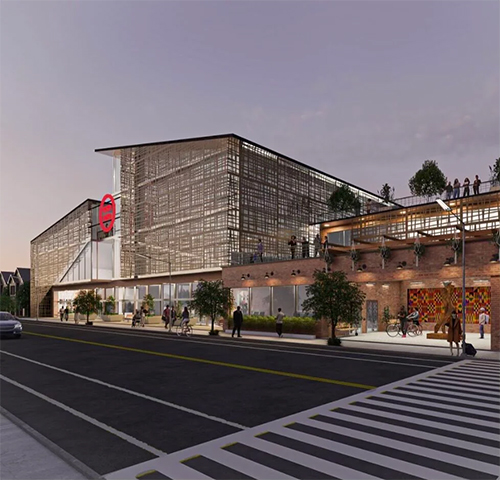The Buffalo Urban League – which provides comprehensive programming in education and workforce development to support, grow and empower Buffalo’s Black community – is planning to construct a new $25 million headquarters on Jefferson Avenue in Buffalo, N.Y., aiming to enhance its presence in East Side neighborhoods.
This project seeks to consolidate multiple locations, including the current headquarters, into a 40,000-square-foot building. The new space will accommodate administrative functions, program areas, and a potential business incubator. The design intends to reflect the neighborhood’s culture and sustainability while fostering private conversations and community engagement.

Buffalo’s East Side has seen several redevelopment projects in recent years. Most notable is the
Northland Corridor – a $60 million project that includes the
Northland Workforce Training Center (NWTC), which upskills community members for jobs in advanced manufacturing and clean energy. The NWTC produces $10.8M in annual economic impact and over 60 percent of its students are a minority.
Additionally, East Side Avenues program, a $65M investment, is strategically targeting four main avenues in Buffalo’s East Side to maximize economic impact for those working and living in the community. This includes leveraging Buffalo’s Broadway-Fillmore neighborhood’s dense stock of largely historic commercial buildings for new green space, retail-oriented streets, and improved bike and pedestrian connections.
Buffalo’s Central Terminal, a historic former railroad station, recently received $60M to restore its historic concourse and a $23.5M investment for the development of affordable homes on vacant city-owned lots on the East Side.
In terms of housing, this summer the region announced a $23.5M investment for the development of affordable homes on vacant city-owned lots on the East Side. This news came shortly after the completion of Mount Aaron Village, a $20.3 million project that included 59 new affordable apartments and 17 townhomes for 300 residents.
The Buffalo Urban League project will be funded partly by philanthropic donations, state assistance, and potential tax credits, emphasizing fundraising without utilizing funds from their daily operations.